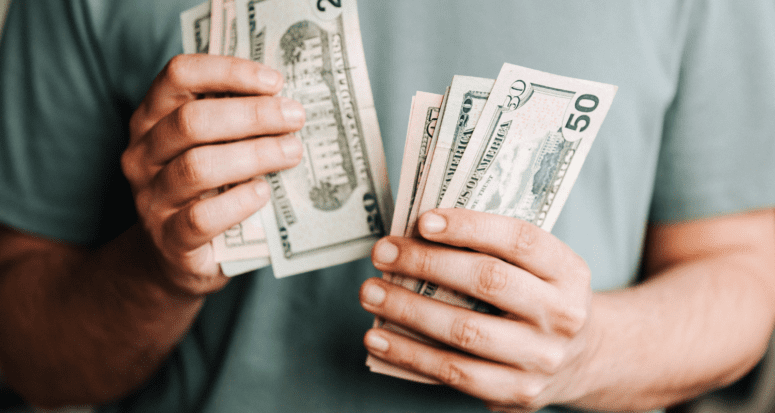I Just Bought a House! So… What’s My Home Resale Value?
- Published on
- 4 min read
-
 Jody Ellis Contributing AuthorClose
Jody Ellis Contributing AuthorClose Jody Ellis Contributing Author
Jody Ellis Contributing AuthorJody Ellis is a freelance writer with more than 15 years of experience in the writing industry. Her work includes copywriting and content marketing for real estate professionals, stories covering real estate trends and housing markets, and varied articles on decor and design. In addition to buying and selling several homes herself, she's also owned and managed rental properties, and previously worked in mortgage lending.
When purchasing a home, most buyers are primarily concerned with things like square footage, the number of rooms, how their new home will accommodate their family… and of course, just how much that payment is going to be each month. All of those issues are important considerations when you’re trying to find the perfect house, but there’s another factor related to your purchase that is equally important, and you might be asking yourself almost as soon as you move in: “What’s my home resale value?”
Resale value, or the price you can expect to collect when you decide to sell your house, might not be on your radar at all when you buy. Maybe you see your new purchase as your forever home, or at least a house you’ll occupy for several years. Or maybe you’re more concerned with that monthly payment than what your house will be worth at some point down the road.
According to an analysis by the National Association of Realtors, the median duration of homeownership is 13 years, which means that while you might not have selling on your mind right now, at some point you’ll be looking at putting your current home on the market. And even if you think you’ll never move, we all know life can change quickly, so understanding what affects a home’s resale value should be part of the process when you make the decision to buy.
While you can’t know for sure what kind of resale value your home might have until it is actually listed, there are ways to anticipate what your home will be worth in the future, as well as ways to potentially increase or at least maintain the value prior to selling.

Location, location, location
Las Vegas real estate agent Michael Marino, who has more than 15 years of experience in the industry, says that although buyers seldom think about resale value when they purchase their home, they probably should.
“When someone is purchasing an owner-occupied home, resale value is usually the last thing on their mind,” he says.
“Buyers tend to care about what they need in that moment, not about whether or not the house will sell at a later date.”
Marino notes, however, that things like the school district, neighborhood, and the overall location of the home are going to be factors when the time does come to sell.
“I think location is one of the biggest considerations,” he says. “You can change a lot of things about a house, but you can’t change the location. If you’re looking to buy, and two houses are the same except for one being in a better school district, the house in the better school zone is most likely going to have a stronger resale value.”
Marino also says that a home in a more desirable neighborhood, even if it needs work, is usually a good investment.
“If there were to be another crash, the first areas to bounce back are going to be those that were sought-after to begin with,” he says. “And those neighborhoods that maybe weren’t so good to start with will recover slowest.”
Maintenance matters
Along with making sure your house is in a good location, things like the view, the age and the size of house, performing regular maintenance, or upgrading the house are also important for keeping that resale value as high as possible.
“The way owners take care of a house can make a big difference when it comes to resale,” says Marino. “Maintenance is just as important, if not more important, than fancy upgrades.”
Alaska home appraiser Carla Garrod agrees that when it comes to resale value on homes, maintenance is one of the most important things a homeowner can do.
“You don’t have to completely remodel a house in order to make it attractive to potential buyers,” she says, “but you do want to make sure you don’t let regular maintenance slip.”
Garrod says that smaller upgrades, such as new paint or carpet, can also go a long way toward improving resale value. “Many people want a home they can put their own personal stamp on, and so you don’t need to put a bunch of money into extensive renovations. But you do want to make sure that you keep up on maintenance, especially bigger-ticket items like water heaters, roof repairs, and foundation issues.”
In addition to managing the upkeep of your home, there are improvements buyers can do to potentially increase resale value.
“Curb appeal is big,” says Marino. “Landscaping front and back yards, exterior paint — those are all things you can do that should still give you a decent return on your money. If you spend $10,000 on the exterior of your home, I estimate a return of $1.25 for every dollar spent.”
Marino says that improvements like carpet and paint, while not necessarily something that increases the overall value of the home, do provide a facelift that can make a home more attractive to potential buyers.
Fixer to fabulous?
If you’re at all handy, you might be thinking you can buy a home that needs a little work and put some sweat equity into the property, reaping the financial rewards when you sell. This can sometimes be a good way to boost the home’s resale value, but you’ll want to make sure that you can afford the remodeling costs, and that you have the skill required to do the work.
Real estate agent Raylene Lewis, who is based in Texas, says that buyers looking at fixer-uppers should make sure to try to buy significantly under market value in order to wring everything possible out of that sweat equity, and buyers also need to remember that maintenance issues don’t really count in regards to the home’s value.
“If you’re fixing things that are considered maintenance, like a new roof or a furnace, it isn’t going to make a huge impact on your resale value,” she says. “The one big benefit of taking care of any maintenance issues prior to listing it is your house may sell faster than other homes that need more work.”
Lewis cautions buyers to make sure they have a financial cushion for any remodeling work. “You need to be able to estimate your cost and sweat equity versus actual cost and time,” she says. “And remember that when you invest money on upgrades, you aren’t going to get back dollar-for-dollar what you put in. For example, if someone puts $100,000 into building a pool — you aren’t going to get anything close to that back when you sell.”

Consider your market
Many buyers might wonder if their home’s resale value could be affected by the initial cost of the home, and that is true to some degree.
For example, in late summer 2020, the combination of low interest rates alongside the global coronavirus crisis put a good portion of the U.S. into what is considered a seller’s market, which means most buyers were paying close to or above the list price for homes. At the time, “most buyers are okay with paying at or above list price, primarily because low interest rates mean the payment will still be low,” says Marino. “Buying a home that’s already at its peak resale value doesn’t necessarily mean it won’t appreciate over time, but it’s going to take longer.”
Lewis agrees.
“It takes three to five years, depending on the market, for a home to appreciate enough in value to sell,” she says. “You can expect an appreciation of approximately 3% per year.” Lewis suggests that buyers not go for the most expensive house in the neighborhood because when you decide to sell, the listing price will be based at least partially on the market value of your area.
“Look at comparable sales in your area,” she says. “If you pay too much, you may not be able to sell for quite some time.”
This also tends to be true for new construction.
“If you buy new construction, it’s initially kind of like buying a new car,” says Lewis. “That car loses value the minute you drive it off the lot.
“A new construction home will, of course, eventually appreciate in value, but if you sell too soon, you could be competing with brand-new homes being built right next to you, and you’d have to sell your home for less in order to avoid competing against newer homes.”
Lewis says that one caveat could be if you are one of the first to buy in what is considered a very “hot” neighborhood and got a good discount as one of the first buyers. Then you might see faster appreciation and a higher resale value.
Plan ahead
Regardless of what route you take when it comes to your home purchase, real estate is almost always a sound investment. Whether you wait two years to sell or twenty, keeping the idea of your home’s potential resale value in mind when you buy is a good idea.
“There’s no way to predict the future,” says Marino, “and there’s really no way to calculate appreciation. But buyers can and should think about resale value when they buy, and plan accordingly.”
Header Image Source: (Karolina Grabowska / Pexels)
